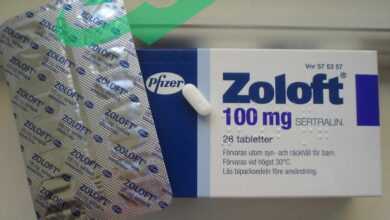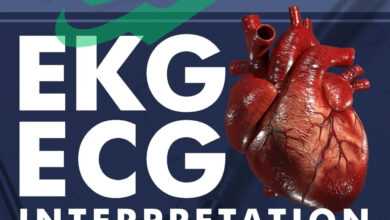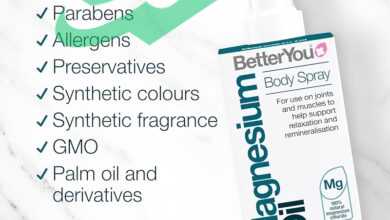From Panic to Recovery: Dealing with Anxiety Attack Hangover
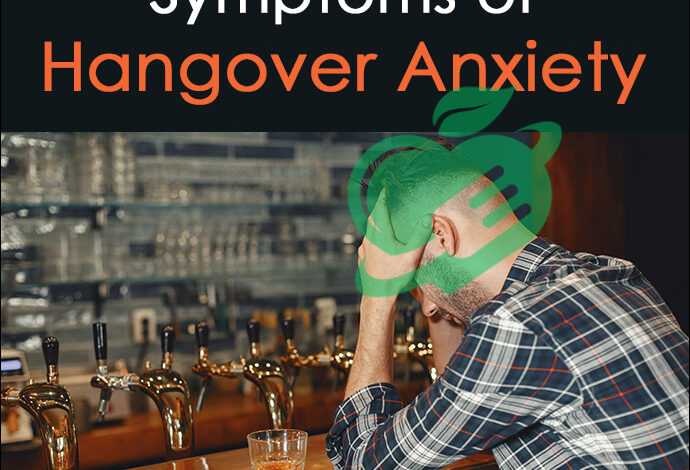
Understanding Anxiety Attack Hangover
Definition of Anxiety Attack Hangover
Anxiety attack hangover is a term that describes the lingering effects and aftermath of an anxiety attack, which can often feel overwhelming. When someone experiences an anxiety attack—characterized by intense feelings of fear, panic, or dread—they may find themselves debilitated, not just during the episode but also afterward. This hangover can manifest as a lingering sense of disorientation, fatigue, and emotional exhaustion, akin to how one might feel after a physical hangover from drinking too much alcohol. Imagine the aftermath of running a marathon without any training. The heart racing, breathless experience is closely followed by muscle soreness and fatigue. Similarly, after an anxiety attack, the mind and body need time to recover from the emotional toll that the experience has taken. This anxiety attack hangover can occur for several hours, days, or even longer, depending on the individual and the severity of their anxiety disorders. Understanding what it entails is crucial for managing these episodes effectively.
Symptoms and Signs of Anxiety Attack Hangover
Recognizing the symptoms and signs of anxiety attack hangovers is essential for those experiencing them, as well as for their loved ones. The experience can vary greatly from person to person, but common signs include:
- Physical Symptoms:
- Fatigue: A pervasive sense of tiredness settles in after the adrenaline from the attack has worn off.
- Muscle Tension: Some may feel tightness or soreness in areas of the body, like the neck, shoulders, or back.
- Headaches: Tension headaches can occur due to prolonged stress and muscle tension.
- Digestive Issues: A feeling of nausea or an upset stomach may arise as a lingering effect.
- Emotional Symptoms:
- Irritability: Individuals may find themselves more easily annoyed or upset, reacting strongly to minor triggers.
- Sadness or Depressed Mood: A sense of hopelessness and sadness can engulf those recovering from an anxiety attack.
- Uncertainty or Fear: Questions about future anxiety attacks may linger, leading to anticipatory anxiety.
- Cognitive Symptoms:
- Difficulty Concentrating: The mind may feel foggy, making it hard to focus on tasks or engage in conversations.
- Memory Lapses: Some may experience short-term memory issues, feeling as if they cannot remember recent events clearly.
Personal Anecdote: Consider Sarah, a graphic designer and a regular attendee of anxiety support groups. After experiencing a significant anxiety attack during a crucial presentation, Sarah found herself in the grips of an anxiety attack hangover. For days after, she felt constantly exhausted, and even the simplest tasks felt monumental. This experience pushed Sarah to reflect on her emotions, leading her to understand the importance of managing her anxiety proactively.
Read also : 5 important foods that protect you from depression
Summary of Symptoms and Signs
The symptoms of anxiety attack hangover can be distressing, leading not only to physical discomfort but also to emotional and cognitive challenges. To summarize:
| Type | Symptoms |
|---|---|
| Physical | Fatigue, muscle tension, headaches, digestive issues |
| Emotional | Irritability, sadness, uncertainty |
| Cognitive | Difficulty concentrating, memory lapses |
Awareness of these symptoms can empower individuals to take proactive measures in their recovery journey. By recognizing the signs associated with anxiety attack hangovers, individuals can better manage their emotional well-being, establish coping mechanisms, and seek help when needed. Understanding these effects is just the first step in navigating the complex terrain of anxiety and its impacts on daily life.
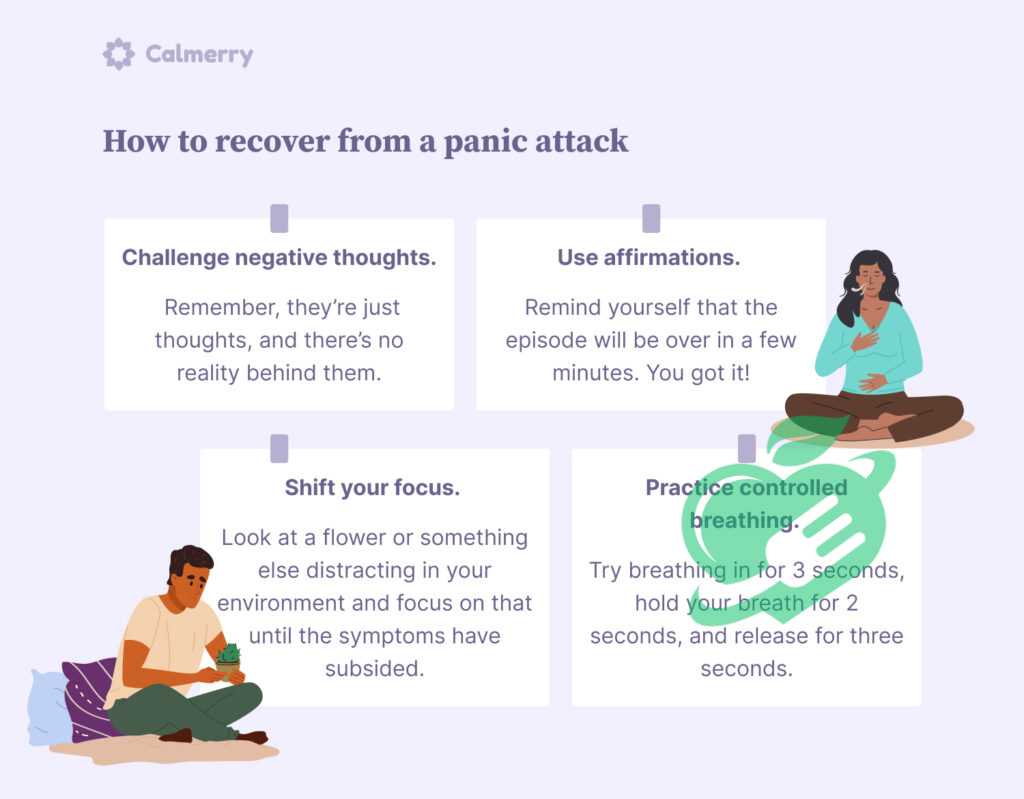
Causes and Triggers
Factors Leading to Anxiety Attack Hangover
Understanding the factors that lead to an anxiety attack hangover can play a pivotal role in managing future anxiety episodes. It allows individuals to pinpoint the underlying causes that may contribute to heightened anxiety sensitivity. Some factors include:
- Stressful Life Events: Major changes in life, such as moving to a new city, starting a new job, or experiencing a loss, can create immense stress. For example, when Mark relocated for a promotion, he experienced multiple anxiety attacks amid the adjustment, resulting in severe hangover symptoms afterward.
- Chronic Anxiety Disorders: Individuals with pre-existing anxiety disorders are more susceptible to experiencing anxiety attack hangovers. The frequency and intensity of anxiety episodes can compound the emotional and physical exhaustion.
- Lack of Sleep and Poor Nutrition: Sleep deprivation and an unbalanced diet can contribute significantly to anxiety levels. For instance, Clara, a college student, often found herself staying up late to finish assignments and skipping meals. After experiencing anxiety attacks during finals week, she felt a heavy hangover that lingered throughout the day.
- Substance Use: The consumption of alcohol, caffeine, or drugs can amplify anxiety symptoms. The day after a night of heavy drinking, for instance, many people report feeling jittery, anxious, or depressed.
- Health Conditions: Certain medical conditions, like thyroid disorders or heart disease, can exacerbate anxiety sensations. Individuals dealing with both physical and mental health issues often struggle more intensely with the aftermath of anxiety attacks.
Common Triggers of Anxiety Attack
In addition to the internal factors that lead to anxiety attack hangovers, there are common external triggers that can initiate anxiety attacks. Identifying these triggers is critical for anyone looking to manage anxiety effectively:
- Situational Triggers:
- Public Speaking: Many individuals fear speaking in public, and even the thought can induce anxiety.
- Crowds and Social Events: Environments laden with many people can overwhelm those who experience social anxiety.
- Work Pressure: High-stakes work environments where performance is closely monitored can trigger bouts of anxiety.
- Emotional Triggers:
- Conflict with Loved Ones: Arguments or emotional turmoil in relationships can lead to an anxiety episode.
- Feelings of Overwhelm: A build-up of responsibilities may create a sense of drowning, leading to anxiety.
- Environmental Triggers:
- News and Social Media: Constant exposure to news that focuses on negative events can elevate feelings of anxiety. Anna, for instance, became increasingly anxious after reading about numerous global crises and conflicts, which spiraled into anxiety attacks persistent for weeks.
- Weather Changes: Some individuals report heightened anxiety during extreme weather events, such as storms or heat waves.
- Physical Triggers:
- Fatigue: Excessive tiredness can lower one’s threshold for coping with stressors, leading to anxiety attacks.
- Health Symptoms: Experiencing unpleasant bodily sensations, such as a racing heart, can trigger panic and subsequent anxiety attacks.
Summary of Causes and Triggers
| Type | Causes/Triggers |
|---|---|
| Internal Factors | Stressful life events, chronic anxiety, lack of sleep, substance use, health issues |
| Situational Triggers | Public speaking, crowds, work pressure |
| Emotional Triggers | Conflict, feelings of overwhelm |
| Environmental Triggers | Exposure to news, weather changes |
| Physical Triggers | Fatigue, unpleasant health symptoms |
By understanding these factors and triggers, individuals can take proactive steps to minimize their exposure to situations that provoke anxiety, thus reducing the likelihood of anxiety attack hangovers. Knowledge is power; with a better grasp of what contributes to anxiety symptoms, people can navigate their emotional landscapes more successfully, ultimately leading to improved mental health and well-being.
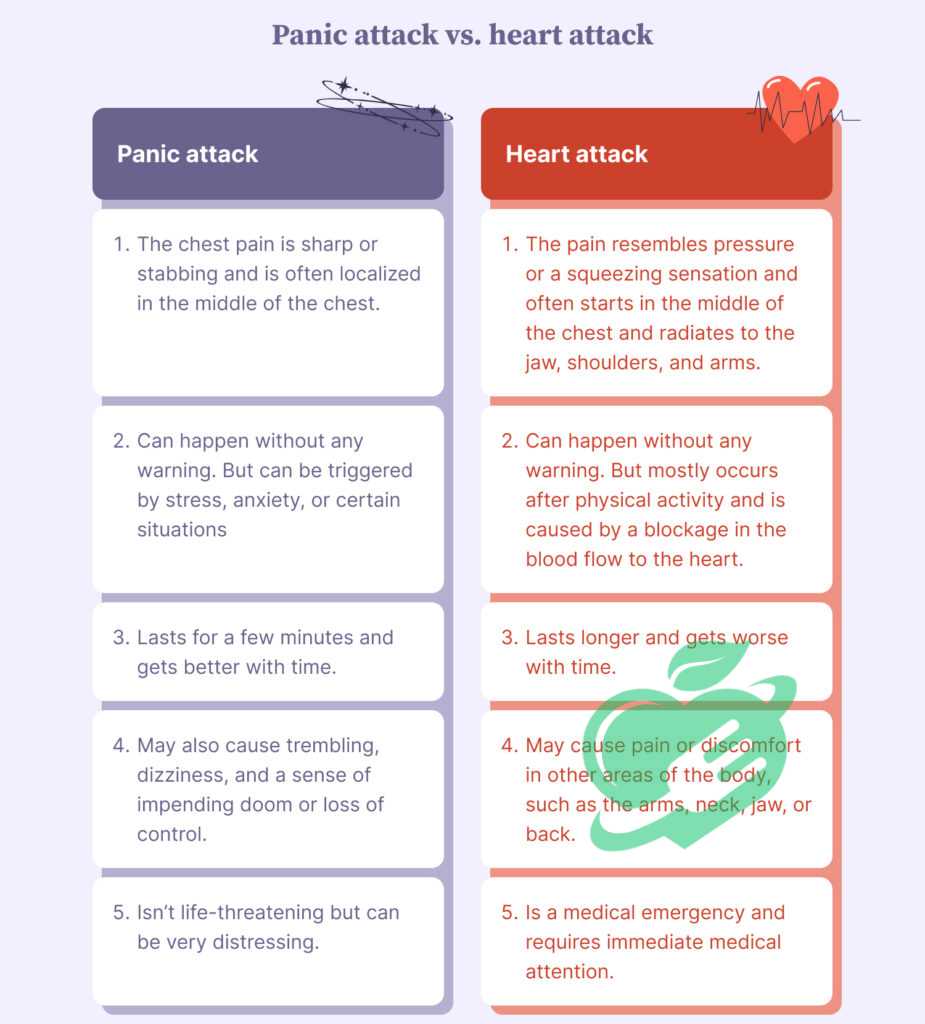
Coping Mechanisms During an Anxiety Attack Hangover
After identifying the causes and triggers of anxiety attack hangovers, it becomes essential to develop effective coping mechanisms to manage the emotional and physical toll they can impose. Two highly effective strategies for finding relief during these difficult times are breathing techniques and mindfulness practices.
Breathing Techniques for Relief
Breathing techniques can serve as powerful tools in reducing anxiety and promoting relaxation. They can help calm the nervous system and slow down racing thoughts, making them especially beneficial during a hangover from an anxiety attack. Consider incorporating the following techniques:
- Diaphragmatic Breathing:This technique encourages deeper, more effective breaths that can promote a sense of relaxation. Here’s how to do it:
- Find a Comfortable Position: Sit or lie down in a calm space.
- Inhale Deeply: Place one hand on your chest and the other on your abdomen. As you breathe in through your nose, ensure that your diaphragm inflates by allowing your abdomen to rise more than your chest.
- Exhale Slowly: Let the breath out through your mouth, feeling your abdomen fall. Aim for a longer exhale than inhale.
- Repeat: Focus on a count of four while inhaling and six while exhaling for about five to ten minutes.
- 4-7-8 Breathing Method:This technique uses a created rhythm to decrease tension.
- Inhale: Breathe in through your nose for a count of 4.
- Hold: Hold your breath for a count of 7.
- Exhale: Breathe out through your mouth for a count of 8.
- Repeat: Continue this cycle for several rounds, allowing your mind and body to settle.
- Personal Anecdote: After facing an anxiety attack during an important meeting, Laura learned to use breathing techniques as a form of immediate relief. She shared how diaphragmatic breathing transformed her experience, enabling her to regain control and clarity even when emotions became overwhelming.
Mindfulness and Meditation Practices
In addition to breathing techniques, mindfulness and meditation practices can significantly reduce the lingering effects of anxiety attack hangovers. These practices help ground oneself in the present moment, making it easier to cope with uncomfortable feelings. Here are some guided methods to consider:
- Body Scan Meditation:This meditation technique involves a step-by-step focus on various body parts to promote relaxation:
- Get Comfortable: Lie down comfortably or sit up straight.
- Close Your Eyes: Take a deep breath and relax your body.
- Focus on Each Body Part: Starting at your toes, notice how each area feels, gradually moving up through your feet, legs, abdomen, hands, arms, neck, and head.
- Release Tension: As you focus on each part, imagine breathing in tension and breathing out relaxation.
- Mindful Walk:Engaging in a mindful walk allows you to connect with your environment.
- Choose a Peaceful Setting: Go outside or find a quiet space indoors.
- Concentrate on Your Steps: Pay attention to the feeling of your feet touching the ground, the rhythm of your walk, and your surroundings—the sounds, sights, and scents.
- Stay Present: If anxious thoughts arise, acknowledge them without judgment and gently redirect your awareness to your walk.
- Guided Meditations: Apps or online resources can provide guided sessions tailored for anxiety relief. Spending even just 10 minutes focusing on a guided meditation can help ease the symptoms of an anxiety attack hangover.
Summary of Coping Techniques
| Coping Mechanism | Description |
|---|---|
| Breathing Techniques | Diaphragmatic breathing, 4-7-8 breathing method for calming anxieties |
| Body Scan Meditation | Guided meditation focusing on individual body parts to promote relaxation |
| Mindful Walk | Connecting with the environment through sensory awareness while walking |
| Guided Meditations | Technology-assisted mindfulness to anchor the mind in the present moment |
Incorporating these coping mechanisms can transform one’s experience during an anxiety attack hangover. By leveraging techniques like mindful breathing and meditation, individuals may find themselves navigating their recovery with greater ease, allowing for a more positive path toward healing and resilience.
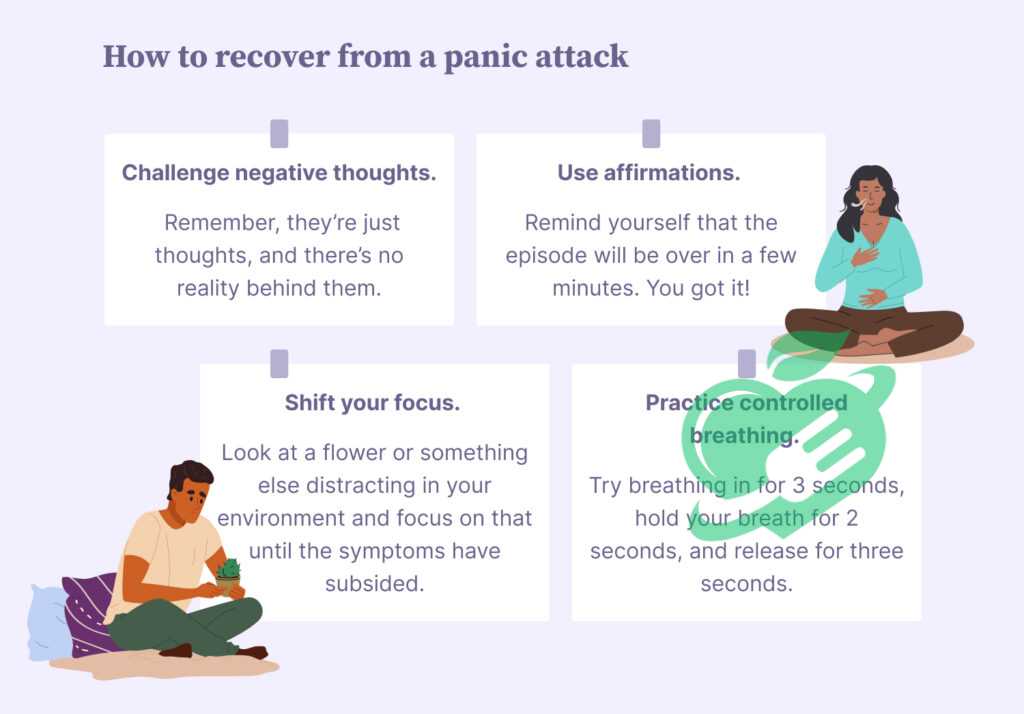
Seeking Professional Help
When coping mechanisms like breathing techniques and mindfulness practices aren’t enough, seeking professional help becomes pivotal in managing anxiety disorders and minimizing the impact of anxiety attack hangovers. Professional support provides tailored approaches that can lead to significant improvements in mental health.
Read also : Unmasking Anxiety: Understanding and Overcoming Chest Symptoms
Therapy Options for Managing Anxiety Disorders
Various types of therapy are available for those struggling with anxiety disorders, each aiming to address the specific needs and challenges individuals face. Understanding these options can empower someone to find the right fit for their healing journey:
- Cognitive Behavioral Therapy (CBT):CBT is a widely practiced therapeutic approach that helps individuals identify and change negative thought patterns that contribute to anxiety. For example:
- A therapist guides the individual through exposure exercises, gradually confronting their fears.
- Techniques to challenge distorted thinking—like recognizing catastrophic thoughts about future anxiety attacks—are explored.
- Exposure Therapy: This form of therapy gradually exposes individuals to anxiety triggers in a controlled and safe environment. This helps desensitize them over time, as friends of Laura discovered when they attended sessions with a therapist who specialized in exposure therapy. By confronting their fears head-on in small steps, they reduced their overall anxiety significantly.
- Dialectical Behavior Therapy (DBT):Initially developed for individuals with borderline personality disorder, DBT has proven effective for those dealing with anxiety. It incorporates mindfulness, emotional regulation, and distress tolerance. In DBT, clients learn:
- Techniques to deal with overwhelming emotions.
- How to build a life worth living while accepting their current situation.
- Medication:While therapy plays a significant role, some individuals benefit from medication prescribed by a healthcare provider. Common medications include:
- Antidepressants: Often used in managing anxiety disorders.
- Benzodiazepines: These provide quick relief but are typically prescribed for short-term use due to potential dependency.
Importance of Consulting a Healthcare Provider
Consulting a healthcare provider is vital for anyone facing anxiety issues, whether you are experiencing recurrent anxiety attacks or persistent hangover symptoms afterward. Here are some key reasons why this step is essential:
- Accurate Diagnosis: A healthcare provider can perform a comprehensive assessment to distinguish between different anxiety disorders, ensuring tailored treatment options that suit your unique situation. They may use standardized tools to help identify specific triggers and symptoms.
- Customized Treatment Plans: Each individual’s experience with anxiety differs widely. A professional can develop a personalized treatment plan that combines therapy, medication, and lifestyle adjustments to meet specific needs.
- Monitoring Progress: Regular consultations with a provider allow you to review and adjust your treatment plan as needed, facilitating progress tracking and making necessary changes based on your feedback.
- Support System: Engaging with healthcare professionals creates a reliable support system. Professionals can provide encouragement and help individuals navigate challenges along the way, making the road to recovery feel less isolating.
- Personal Anecdote: After months of struggling with anxiety, Mark decided to reach out to his doctor for help. Through regular sessions with a therapist specializing in CBT, he learned to manage his anxiety effectively. He described feelings of relief as he collaborated with professionals who understood his challenges, emphasizing this support as crucial for his recovery.
Summary of Professional Help Benefits
| Benefit | Description |
|---|---|
| Accurate Diagnosis | Identification of specific anxiety disorders through comprehensive assessment |
| Customized Treatment Plans | Tailored approach combining therapies and medications that suit individual needs |
| Monitoring Progress | Regular check-ins to evaluate progress and adapt treatment |
| Support System | Building a reliable network of healthcare professionals for encouragement |
Seeking professional help can be a transformative step toward regaining control over one’s mental well-being. The journey through anxiety does not have to be undertaken alone; support from trained professionals can facilitate healing, enabling individuals to lead healthier, more fulfilling lives.
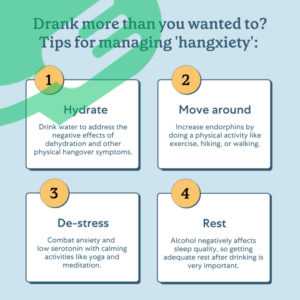
Lifestyle Changes for Recovery
In addition to professional help, implementing lifestyle changes can significantly enhance recovery from anxiety attack hangovers and mitigate the onset of anxiety attacks in the future. Adopting healthy habits and incorporating physical activity into daily routines can have transformative effects on mental well-being.
Read also : 3 simple ways to stop negative thoughts
Healthy Habits to Reduce Anxiety
Establishing a set of healthy routines can create a solid foundation for managing anxiety. Here are some essential habits to consider integrating into your life:
- Balanced Nutrition:What we consume directly affects our mood and energy levels. Focus on a well-rounded diet that includes:
- Whole Foods: Fruits, vegetables, whole grains, and lean proteins nourish the brain and body.
- Hydration: Drinking enough water helps maintain optimal brain function; dehydration can contribute to anxiety.
- Limit Sugar and Caffeine: Both can cause fluctuations in energy, leading to increased feelings of anxiety. For instance, managing caffeine intake was a game-changer for Emily, who found that cutting back on coffee significantly reduced her anxiety levels.
- Consistent Sleep Schedule:Aim for 7–9 hours of quality sleep each night. Prioritize sleep hygiene by:
- Creating a Relaxing Bedtime Routine: Engage in calming pre-sleep activities such as reading or taking a warm bath.
- Maintaining a Regular Sleep Schedule: Going to bed and waking up at the same time daily reinforces your body’s internal clock.
- Mindful Living:Being present and engaged in daily tasks can foster a sense of calm. Consider:
- Practicing Gratitude: Keeping a gratitude journal allows individuals to focus on positive aspects of life, promoting a more optimistic outlook.
- Limiting Screen Time: Reduce exposure to social media and news that can provoke anxiety and distract from the present moment.
Exercise and Physical Activity Recommendations
Exercise is one of the most effective ways to combat anxiety. Engaging in regular physical activity can promote the release of endorphins, boost self-esteem, and provide a healthy outlet for stress. Here are some tailored recommendations:
- Aerobic Exercises:Activities like running, swimming, or cycling can significantly elevate mood by improving cardiovascular health and reducing stress. Aim for:
- At least 150 minutes of moderate activity per week: This can be broken down into manageable sessions.
- Strength Training: Incorporating weightlifting or resistance exercises helps improve muscle strength and promotes body confidence. Even basic resistance can offer therapeutic benefits.
- Mind-Body Exercises: Practices like yoga and tai chi combine physical movement with mental focus and breathing techniques, fostering relaxation and reducing anxiety. Regular participants of yoga, like Ava, often report remarkable improvements in emotional regulation and mindfulness.
- Find What You Enjoy: The best exercise is the one you’ll stick with! Experiment with different forms of physical activity, whether it’s hiking with friends, joining a dance class, or trying out martial arts. Enjoying the activity makes it easier to incorporate into your routine.
- Set Realistic Goals: Setting achievable fitness goals helps maintain motivation. Start small with manageable targets, gradually increasing intensity. An anecdote from Jake highlights this; he began by walking for 20 minutes daily and soon found himself running half-marathons.
Summary of Lifestyle Changes
| Lifestyle Change | Description |
|---|---|
| Balanced Nutrition | Focus on whole foods, hydration, and limiting sugar/caffeine |
| Consistent Sleep Schedule | Aim for 7–9 hours with a calming bedtime routine |
| Mindful Living | Engage in gratitude practice and limit screen time |
| Aerobic Exercises | 150 minutes of moderate activity weekly, like running/swimming |
| Strength Training | Incorporate resistance exercises for body confidence |
| Mind-Body Exercises | Practicing yoga or tai chi for relaxation and focus |
| Find What You Enjoy | Explore various activities to enhance commitment |
| Set Realistic Goals | Achievable fitness targets for sustained motivation |
Integrating these lifestyle changes can be a powerful pathway toward recovery from anxiety and its associated hangovers. By focusing on healthy habits and regular physical activity, individuals can not only improve their mental well-being but also cultivate resilience against future anxiety experiences. Every small step taken creates a bigger foundation for a balanced and fulfilling life.
